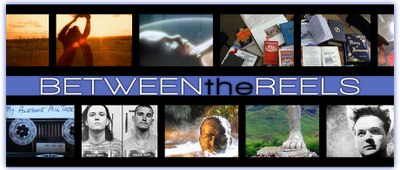
It isn't anything new that the films of this particular auteur have been described as "dreamlike". What is so ironic is that the films of Lynch consciously try to wake us up. They're not ones where Joe Moviegoer would go to see to pass the time. They are not the kind of art films you would expect but they are very commercial either. These films occupy an entirely different territory. His best work doesn't really have much of a point (as in a traditional narrative) to them. Thus resisting interpretation and analysis from countless faux hip snobs and critics. Lynch's works also tend to avoid the trap of irony. The restrictions he puts on his characters means they are not to analyze anything. This lack of irony is the sword on which cineastes who dislike his work fall on. Which is another reason (of many) why I dig his catalog so much.
Lynch is more concerned about mood. In fact, open any youtube interview and chances are you'll hear him discussing mood. If Inland Empire is any indication of this, then it is his most accomplished and fully realized vision in that regard since Eraserhead. All the hallmarks are present. The fascination with electricity and lights, The textures of the haggard face of Dern as she limbers down Sunset Boulevard. The sound design and colors used throughout the picture. It all comes together in a stream of consciousness type of writing. This is coming from a director who was working without a script.
If there's one thing that rings true about most of his works, you don't feel like you're entering into an unconscious contract like you do with other films. This is why his premiere work, Eraserhead, Blue Velvet, Mulholland Dr. and Inland Empire, have effects that are often emotional and nightmarish. In fact, I would go on record to say that Lynch's tone in his films has influenced more than any other living director. Including Quentin. As David Foster Wallace posits in an essay on Lynch "Quentin Tarantino is interested in watching somebody's ear get cut off. David Lynch is interested in the ear." & while I enjoy being stuck in the middle of Marvin, Mr. Blonde and Stealer's Wheel, I still find that Jeffrey Beaumont's Norman Rockwell-esque strange world of Lumberton to be more fascinating.
That's not to say his ouevre is entirely even. We've seen faults in the second season of Twin Peaks just as much as the entire production of Dune. But when he is on his A game, his visions tend to be at their sickest (or creepiest) and tend to derive emotional power making us complicit in their sickness. Laura Dern's collapsing dream presents to us a number of nightmarish visions from which are culled from Lynch's mind.
Nonlinear films for the most part reject the idea of individual characterization. What is so frightening about Inland Empire is that Dern's portrayal of Bobby Sue allows us to empathize with her plight. It's scary to see distrubing images up on a movie screen. It's absolutely terrifying to see them happening to a character that comes off as distubingly personal. You're not safe in the hands of this man who is at the helm of this surrealist nightmare.
Lynch has always used an idea and worked it out to its fullest detail and to its most uncomfortabler consequences. It seems to be a trend amongst some people who like their art to be neat, tidy and morally comfortable. The films of David Lynch are ones that force us to face truths about human nature against evil. The exploration of human beings' relationships to evil are unflinchingly honest and stand as testament to the persona of Lynch himself.
In that regard, Eraserhead and Inland Empire stand as the best examples of that.




